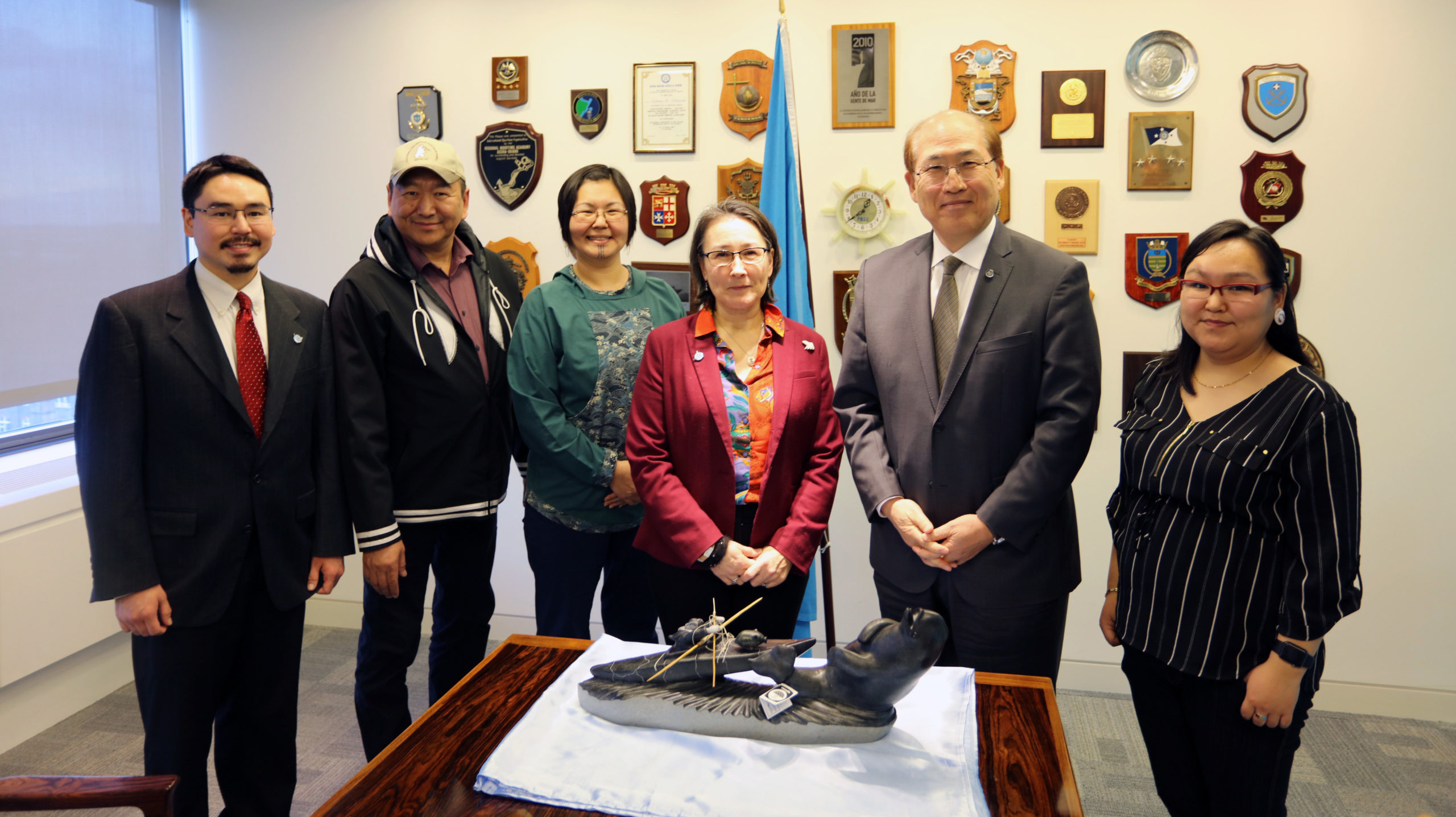The IMO moves closer to an Arctic HFO ban — but with some exceptions
And the ban wouldn't take effect until 2024.

A week-long session of a key International Maritime Organization sub-committee in London ended Friday with some movement toward a ban on heavy fuel oil in the Arctic — but less than proponents of a ban had hoped for.
The pollution sub-committee of the IMO (the UN’s international shipping regulator) took up measures to stop ships in the Arctic from using or transporting the most polluting forms of fuel, commonly referred to as heavy fuel oil or HFO because of their sludgy consistency.
When burned as fuel, HFO produces soot, or black carbon, that is a human health hazard and can also accelerate melting when it settles on ice and snow. And if spilled in a remote Arctic location, it could be difficult or impossible to clean up, advocates of a ban argue.
Canada, an Arctic state that had been a noteworthy holdout against a ban, made waves when it announced before the meeting got under way on Monday that it favored of a ban, with a gradual phase-out, to “help balance the environmental benefits with the economic realities of northern, Indigenous and Inuit communities.”
Groups representing Indigenous people in the region, ranging from the Inuit Circumpolar Council to Nunavut Tunngavik Inc., to the Alaska Federation of Natives have also came out strongly for a ban and had representatives on hand in London to take part in the deliberations, even though there are concerns that a ban could lead to higher costs in Indigenous communities.
But despite that support, momentum for a ban also ran into opposition, including from Russia — another Arctic nation that has long been a holdout against it — and China:
At @ArcticIMO, as recommendation for banning heavy fuel oil moves forward, #Russia stresses, “Environmental bans should be developed and applied only in…thoroughly justifiable cases. Otherwise, it would simply be easier to ban #shipping entirely.” @IMOHQ #Arctic
— Mia Bennett (@cryopolitics) February 21, 2020
Russia, which has seen major public and private investments in its Northern Sea Route and has sought to use shipping as a lever to promote development of its Northern regions, has an especially big stake in any regulations that affect Arctic shipping.
Eventually, the committee passed recommendations, in the form of amendments to the MARPOL Convention, that would phase out HFO by 2024, with some exceptions, including waivers allowing its continued use and carriage under some circumstances through 2029.
Those recommend amendments will now go to the IMO’s Marine Environmental Protection Committee, which will take them up in October.
Conservation groups were sharply critical of the moves. In a press release, the Clean Arctic Alliance, a leading advocate for the ban, said the exceptions — which they characterized as “loopholes” — have the effect of “leaving the Arctic exposed to the growing threat of HFO spills for close to another decade.”
Proponents of a ban worry about the possibility of a significant spill, given that the double-digit increases in shipping volumes seen in recent years is expected to continue. But supporters of an extended transition period argue that an incremental phase-in would give the industry and shipping-dependent Arctic communities a chance to assess the impact of the change.